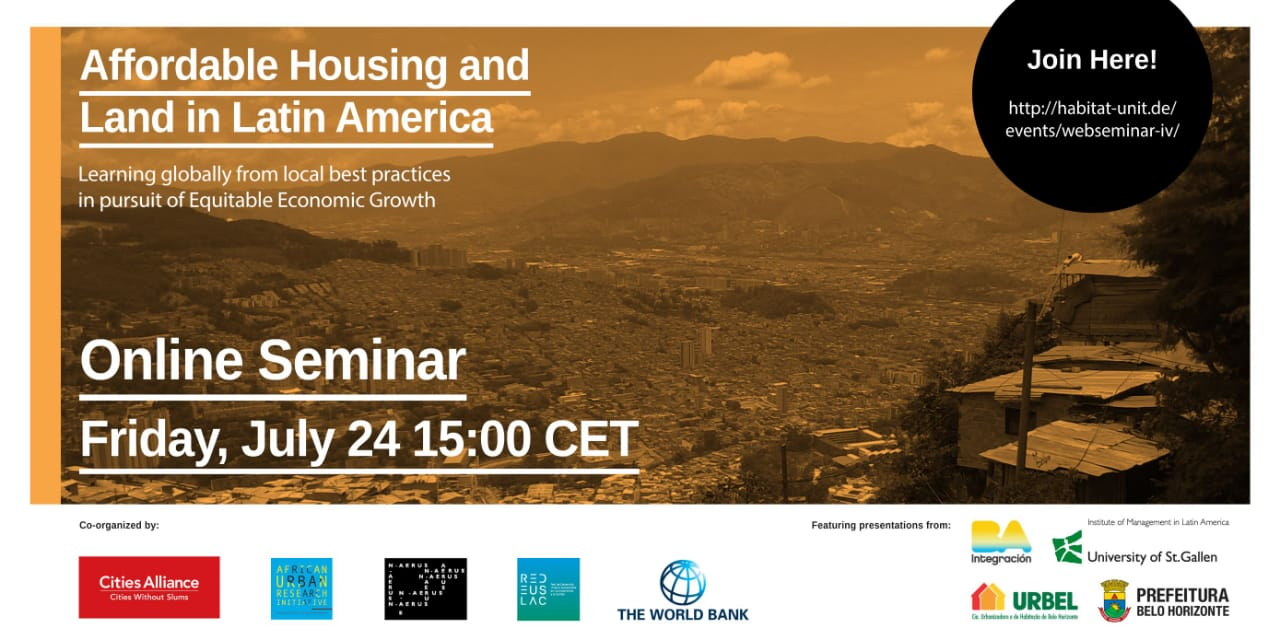
This webinar is co-organized by Cities Alliance and the Habitat Unit from TU Berlin.
The unfolding COVID-19 pandemic and its geography within city regions have brought attention to the socio-economic cracks of current urbanization patterns. Poor neighborhoods and dense informal settlements are disproportionally at risk of becoming contamination vectors. With the health crisis, the fundamentals of cities are again back on the discussion tables: What cities do we want? How best to achieve them?
Urban Local Governments are one of the most essential actors to initiate and sustain change in the urban environment. However, the resources and institutional structure of local governments differ greatly between regions and cultures and more insights are needed for understanding contextual factors that explain successful local practices.
An ongoing collaboration project investigates the relationship between improved access to urbanity and more equitable and sustainable urban development.
- What can be learned from promising housing and slum upgrading projects in Latin America?
- Can local best practices be translated between global regions?
- How can interested academics and practitioners get involved to improve current transnational learning experiences?
This seminar presents two case studies of slum upgrading from Brazil and Argentina. By reviewing the positive and lasting impacts of these projects, we continue to systematize global evidence on the role that the delivery of public goods and services (PG&S) has for Equitable Economic Growth.
Speakers:
Opening remarks by Anna Wellenstein – Regional Director for Latin America and the Caribbean (World Bank)
Anaclaudia Rossbach (Cities Alliance)
Anthony Boanada-Fuchs (University St. Gallen)
Júnia Naves Nogueira (URBEL Belo Horizonte)
Diego Fernández (Barrio 31 Buenos Aires)
Q&A moderated by Catherine Lynch (World Bank)
Registration: https://www.surveymonkey.com/r/973H2RM
Live stream on Facebook https://www.facebook.com/citiesalliance/




